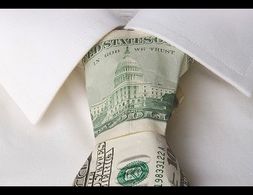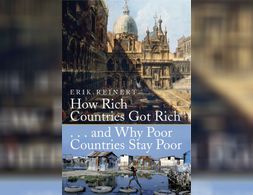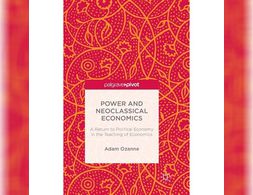✕
7 results
In this radio interview, Andrew Sayer first outlines some features of neoliberalism and policies that are associated with it. Then a difference between wealth creation via investment and wealth extraction by means of lending money to those deprived of it or by acquiring property such as real estate or financial assets on the secondary market as absentee owner is established. In this context reference is made to J.A. Hobson's concept of "improperty." Finally, there are some words on the power dynamics associated with capitalism and its relation to climate change.
Inequality is an issue we all face every day, from income disparities to gender discrimination. In this first lecture in the Institute for New Economic Think...
This volume explores the relationship between law and economics principles and the promotion of social justice. By social justice, we mean a vision of society that embraces more than traditional economic efficiency. Such a vision might include, for example, a reduction of subordination and discrimination based on race, religion, gender, sexual orientation, age, disability or class.
In this refreshingly revisionist history, Erik Reinert shows how rich countries developed through a combination of government intervention, protectionism, and strategic investment, rather than through free trade.
Mainstream economics almost completely ignores the role power plays in determining economic outcomes, which means it can only provide partial explanations of the distribution of wealth and income, and of the problems associated with inequality and poverty.
Racism and discrimination have choked economic opportunity for African Americans at nearly every turn. In From Here to Equality, William Darity Jr. and A. Kirsten Mullen confront these injustices head-on and make the most comprehensive case to date for economic reparations for U.S. descendants of slavery.
Wealth inequality between Black and white people in the US barely has changed in the last 150 years. In her book "The Color of Money. Black Banks and the Racial Wealth Gap" Mehrsa Baradaran, analyzes why also Black banks have not successfully changed this and not enabled Black wealth on a broader scale.
We use cookies on our website. Click on Accept to help us to make Exploring Economics constantly better!







